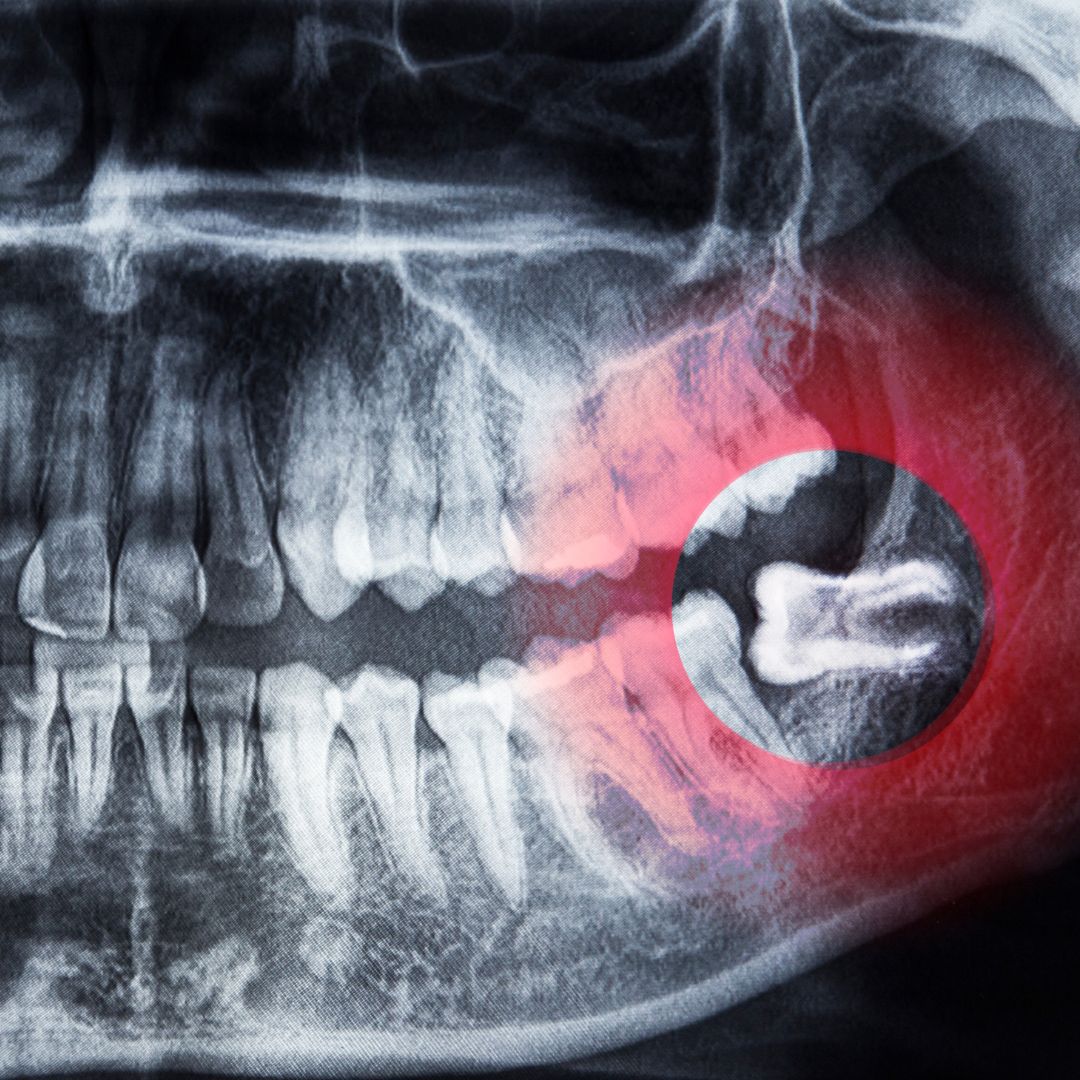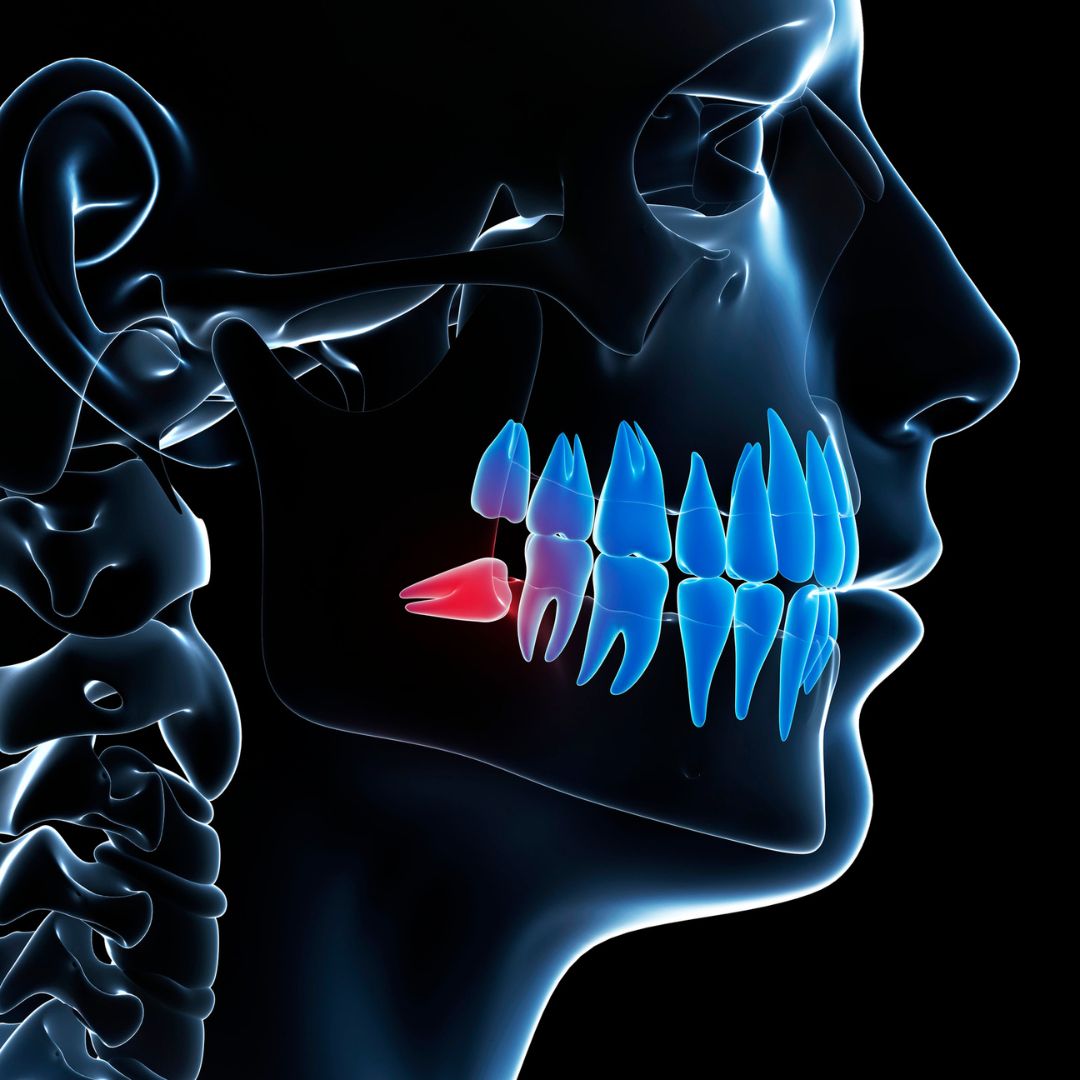Wisdom Tooth Extraction
What are Wisdom Teeth?
Wisdom Teeth are the four permanent adult teeth known as third molars that exist in the far back of the upper and lower jaws. The average age at which wisdom tooth erupts in an adult is from 17 to 25. Individuals experience issues with wisdom tooth if they impinge on other teeth or come in at an awkward angle or experience impact.
What are the different ways in which a wisdom tooth can get impacted?
Impacted wisdom teeth are those that don't have adequate space to erupt into the mouth. These teeth that face this impact may partially erupt or fail to erupt.
A wisdom tooth that is under impact can:
- Grow at an angle in the direction of the next tooth (second molar)
- Emerge in the roof of your mouth at an angle.
- Erupt perpendicular to the surrounding teeth, giving the impression that they are "lying down" in the jawbone.
- Like other teeth, they can erupt from the jawbone in either a straight up or down direction.


How can I know whether I need the removal of my wisdom teeth?
Occasionally, all four wisdom teeth may emerge normally with no problems at all. But, wisdom teeth frequently erupt at an angle or remain partially or completely in impact with the jawbone or beneath the gum line. Your dentist might suggest you remove your wisdom teeth if you:
- Have a toothache in the back of your mouth.
- Possess gum disease, especially in the area surrounding your teeth.
- Comprise a wisdom tooth that has cavities and is partially erupting.
- Develop a cyst (a fluid-filled sac) around the wisdom teeth.
- Hold a wisdom tooth that is decaying the neighbouring teeth or surrounding bones.
Dental professionals frequently advise the removal of wisdom teeth as a precautionary strategy. This can reduce your risk of later acquiring problems like infections and tooth decay.
Things to know before you have your Wisdom Tooth Extraction?
Your dentist will recommend an oral surgeon to you for a consultation and during this session, later the surgeon will inspect your wisdom teeth and get dental X-rays to determine exactly where they are. They'll also discuss sedative alternatives with you. Depending on your particular needs, wisdom tooth extraction is mostly done under local anaesthetic, IV sedation, or general anaesthesia.
You should let your surgeon know about any medications, medical history or dietary supplements you are currently using. Use this chance to ask any questions you may have about the procedure.
What Happens After Wisdom Tooth Extraction?
You can feel a little bit of pain after the removal of your wisdom tooth, along with some bleeding and swelling. Later to reduce these side effects, your dentist will provide you with information on how to care for your wisdom teeth.
Advantages of Wisdom Tooth Extraction
The main benefit of having a wisdom tooth extraction is that it reduces the possibility of oral health problems later such as damage to nearby teeth. If you are currently experiencing pain from your wisdom teeth, extraction can almost immediately put you in good oral health and reduce your discomfort.

